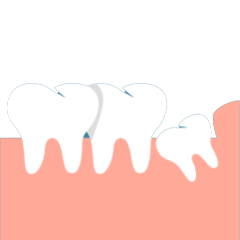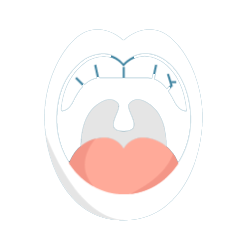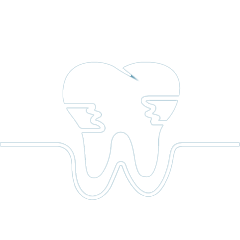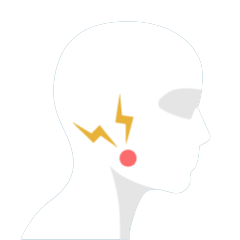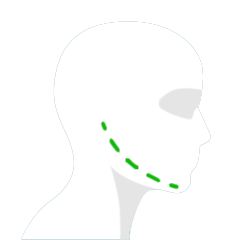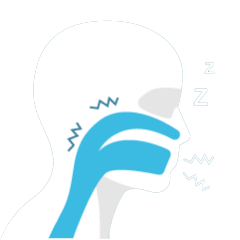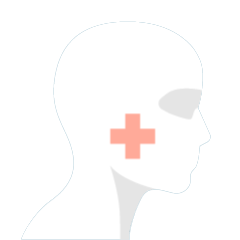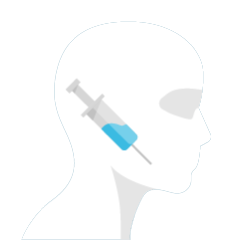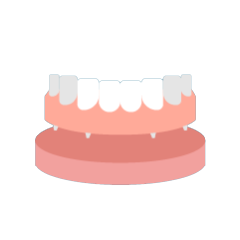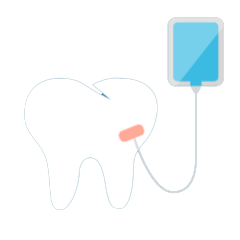Why do I need to see an OMS specialist instead of a general dental surgeon?
A general dental surgeon is a general practitioner treating dental diseases. An oral maxillofacial surgeon specialises in more complex oral surgery for complex mouth disorders like managing impacted teeth, dental implants and jaw surgery. You will be referred to an oral maxillofacial surgeon if your dental condition requires specialised treatment.
Is there an age limit for OMS treatments?
No, there is no age limit for OMS treatments.
Do I need a referral from my dentist?
No, a referral from your dentist is not compulsory. However if you do have an existing referral, do bring it along / inform our team about it as it may contain useful information pertaining to your treatment.
Do you accept walk-in appointments?
We strongly recommend our patients to make an appointment before heading down to our clinics to allow us to serve you better and also to reduce waiting time. You can book an appointment with us conveniently here: https://teethq.com/online-booking
Do you offer same-day treatments?
Yes, we strive to offer same-day treatments depending on the nature of the treatment as much as possible.
Do I need X-ray for OMS treatments?
Yes, an X-ray is usually required for a detailed diagnosis of your condition. If you have taken an X-ray recently, please email your X-ray to us at enquiry@teethq.com together with your name and contact details.
What do I need to bring for my first consultation?
Please kindly bring your identification documents (NRIC / Passport / EP / WP / DP). Alternatively, you may self-register via our registration QR code at the counter by logging in to your SingPass app. Do also bring along the following documents, if applicable:
- CHAS card
- Corporate insurance card (under the list of insurance partners which our clinics are accredited panel dental providers of)
- Referral Letter
- Medication List
Can I go for dental procedures or take X-rays if I’m pregnant or nursing? How about my medication?
If you are pregnant, you can still go for dental treatment although invasive procedures are best avoided in the first 3 months and last 3 months of pregnancy. The doctor will be able to advise you.
Certain medications may pass through the placenta or into breast milk. Do let us know if you are pregnant or breastfeeding so that the doctors can advise you accordingly.
The radiation dose from dental x-rays are low compared to medical x-rays. However, we do advise you not to take any x-rays unless necessary. If you need to, there are lead aprons and shields that will protect your fetus from x-ray radiation.
Can I go for surgery if I have heart murmur?
According to AHA Guidelines, only those with the following require antibiotic prophylaxis before dental treatment:
A prosthetic heart valve or a heart valve repaired with prosthetic material.
A history of endocarditis.
A heart transplant with abnormal heart valve function.
Certain congenital heart defects including:
Cyanotic congenital heart disease (birth defect with oxygen levels lower than normal), that has not been fully repaired, including children who have had surgical shunts and conduits.
A congenital heart defect that has been completely repaired with prosthetic material or a device for the first six months after the repair procedure.
Repaired congenital heart disease with residual defects, such as persisting leaks or abnormal flow at or adjacent to a prosthetic patch or prosthetic device.
If you are not sure what heart condition you have, do have a check with your cardiologist and he/she will be able to advise you accordingly. For more information, please visit https://www.heart.org
What are my options for sedation? How long must I fast before sedation? How long will the sedation last?
You need to fast because we want to prevent vomiting under sedation which will complicate the procedure and endanger your airway. You will wake up a few minutes after the medication is stopped. However, you are advised to rest in our recovery room for at least half an hour to ensure you are fully awake before returning home.
Where will my surgery be performed? Do I need to be admitted to a hospital?
Maxillofacial surgery varies greatly depending on the problem and procedure. Some surgeries can be done in an outpatient setting, and you can go home the same day. Other treatment plans involve multiple surgeries to achieve the desired results.
When do I need to stop taking blood thinners?
If you are taking aspirin, you do not have to stop the medication. However, if you have been advised by your doctor to stop aspirin, you should do so 5 days before the procedure and resume taking it 1 day after the procedure.
If you are taking warfarin and/or other blood thinners, you are advised to consult your physician before the surgery.
Can I go ahead with my surgery if I’m sick or if I’m having menstruation?
Yes. You can have surgery during menstruation or if you have a mild flu. However if you are feeling unwell, you may choose to delay your surgery at your own discretion.
Will I feel pain during surgery?
During surgery, anesthesia will keep you pain-free. Should you experience any pain, please let your doctor know.
Are there any side effects for the surgery?
Expect some bleeding on the first day of surgery. Bleeding should be minimal by the next day. Swelling will usually start the following day. Swelling will be at its maximum on the 2nd day after surgery. To decrease swelling, you are advised to place an ice pack on your cheek on the side of surgery. Do this for the first 2 days. You can place a warm pack on the 4th day after surgery to make the swelling decrease faster.
When will the swelling go away?
Swelling from wisdom teeth and implant surgery will last for about a week. For other procedures, this may last slightly longer.
To decrease swelling faster, you are advised to take the anti-inflammatory medication prescribed to you. You can also place a cold pack on the site of surgery immediately after surgery and the day after.
Do not use cold packs after the third day of surgery, as this will delay recovery. Instead, place a warm pack on the surgery site. This will help the swelling to subside faster.
I experience numbness in my cheek after the surgery. Is that normal?
Swelling at the area after surgery can sometimes mimic numbness. Do not worry, but do let your doctor know on the day of your review.
What causes my fever, and what can I do about it?
Fever is defined as body temperature above 37.5 degrees Celsius or 99.5 Fahrenheit. Fever is a natural response of our body during healing. The medication prescribed for you will decrease your temperature. If the fever is persistent despite medication, do contact your doctor.
Why am I bleeding from my nose after surgery?
Sometimes the procedure that you undergo may involve the nose and/or sinuses, hence the nasal bleed. The bleeding is usually self-limiting. If it persists, place a gauze at the nostrils, gently press against the nostrils and wait for bleeding to stop. DO NOT blow your nose.
What should I do if I am still bleeding after the procedure?
After extraction or surgery, you are advised to bite on a piece of gauze for 30-40 minutes. Bleeding should have stopped after this time.
If the gauze appears bright red upon removal, you are advised to place a new gauze at the same site and bite for another 30-40 minutes.
If the gauze appears partially white, pink or dull red, it probably indicates that the bleeding has stopped. You can dispose of the gauze and there will not be a need to replace the gauze.
When will the bleeding stop?
Bleeding will stop in about 15 mins upon compression of the wound. However, you are advised to bite on the gauze for 30-40 mins.
You might still see some blood stains when you rinse your mouth and during brushing. This is normal.
Is there a reason why I feel some pain in the adjacent tooth after my procedure?
During an extraction or surgery, there will be inflammation around the tissues where the procedure was. This inflammation affects the surrounding tissues and teeth, making the area more sensitive than usual. This will resolve in a few days to weeks.
What if I still experience pain after my surgery?
Begin taking the prescribed pain medication as soon as possible after surgery. Continue taking the prescribed medication as required on the schedule for the first one to two days. After this period, the medication can be taken on an as needed basis.
What is dry socket?
Dry socket, also known as alveolar osteitis, is a painful, post-extraction condition that is experienced in some patients about 3 days after procedure. Patients at risk include smokers, females on oral contraceptives, difficult extraction etc. If you suspect you might have dry socket, do contact us and we will arrange an appointment to see you as soon as possible.
I experience rashes after surgery. Does this mean I am allergic to the medication?
Allergic reactions to medication can manifest as rashes or hives throughout the body. Some patients experience swelling around the eyes and lips. If you experience any of the above, please contact us.
If you have breathing difficulty due to swollen tongue/throat, go to the A&E Department in any hospital immediately.
Do I need to take antibiotics after the surgery?
Not all procedures require antibiotics. Your doctor will advise you accordingly.
How soon can I resume taking my blood thinners?
If you are taking aspirin, you do not have to stop the medication. However, if you have been advised by your doctor to stop aspirin, you should do so 5 days before the procedure and resume taking it 1 day after the procedure.
If you are taking warfarin and/or other blood thinners, you are advised to consult your physician before the surgery.
How many days of Medical Leave will I get?
Extractions 1-2 days
Wisdom teeth/Implant surgeries 5-8 days
Jaw Surgery 30-60 days
How soon can I get back to work?
It depends on the procedure you are undergoing. You may return to work the following day if an extraction is done.
You are advised to rest about 5 days if a surgical procedure was carried out.
Am I able to eat after my surgery? Is there food I should avoid?
You are advised to eat soft, cool foods for the first few days as hard and hot foods can cause bleeding post-surgery.
You can usually start eating normally 3-4 days after the procedure.
When can I brush my teeth?
You can brush your teeth after normal extractions.
For surgical procedures, it is best to avoid brushing the wound and use the mouthwash as instructed.
When can I exercise?
You are advised to avoid strenuous activities for the first 3-5 days after surgery.
If you have a sinus surgery, it is best to avoid exercise for 2 weeks.
Can I travel after surgery?
Ideally, you are advised to travel only after your review with your doctor. That would usually be about 5 days after surgery.
If you have undergone a sinus procedure, it is advised that you should avoid flying for about a week.
What if my sutures come out?
It is common for surgeons to use resorbable sutures (stitches) in oral surgery. These sutures will dissolve on their own within two to three days. Unless there is discomfort or bleeding, it is perfectly normal for them to come out. Follow up with your oral surgeon if there is pain or bleeding.
When can I put on my braces after surgery?
You are advised to put on your braces about 2-3 days after extractions and 1 week after your surgery.
Do you accept cashless payments?
Yes we do, in fact cashless and contactless payments are preferred in our clinics in view of COVID-19 to minimise and reduce touch points.
We accept a variety of cashless payments, including PayNow, DBS PayLah, OCBC Pay Anyone, UOB Mighty, Visa, Mastercard, Amex, Apple Pay, Google Pay, GrabPay, FavePay, FavePay Later, ShopeePay, Samsung Pay, WeChat Pay, Huawei Pay, and AliPay.
The clinics have also gone paperless as default and our patients may receive invoices for their dental treatments
Can I claim from Medisave for my OMS dental treatments?
Yes, our clinics are Medisave-accredited and you may utilise your Medisave to pay for dental treatments which have been approved for Medisave use by the Ministry of Health (MOH). Our doctors and staff will be able to advise you about the Medisave claimable amount in line with the Ministry of Health’s prevailing rules for Medisave use (https://www.moh.gov.sg/cost-financing/healthcare-schemes-subsidies/medisave)
I am a CHAS cardholder. What subsidies can I enjoy?
Our clinics are CHAS-accredited and you may receive your CHAS dental subsidies for selected dental services covered under CHAS. The amount of CHAS dental subsidies which are able to be received are in accordance to the claim limits and subsidy amount for each type of service according to the different CHAS tiers. You may refer to the “CHAS Dental Subsidy Schedule” under the Dental Services section of the CHAS website here for more information.conveniently via email.
I am a Pioneer / Merdeka generation senior. What are the subsidies available for me?
You may be glad to know that the CHAS dental subsidies accorded to Pioneer Generation (PG) cardholders and Merdeka Generation (MG) cardholders are higher than those for CHAS Blue/Orange cardholders. You may refer to the “CHAS Dental Subsidy Schedule” under the Dental Services section of the CHAS website here for more information.
Are OMS treatments covered by insurance?
Yes certain OMS treatments are covered by insurance. Our clinics are accredited panel dental providers with various insurance partners such as Alliance Medinet, DA Adept, MHC, Inova Care, IHP and AIA. You may check with your company / insurance provider for your specific coverage details. We are also looking to add more insurance partners in the future.
![]() ✓ Our Student/NSF braces package costs $3,488! Click here to learn more.
✓ Our Student/NSF braces package costs $3,488! Click here to learn more.

 Book an Appointment
Book an Appointment





